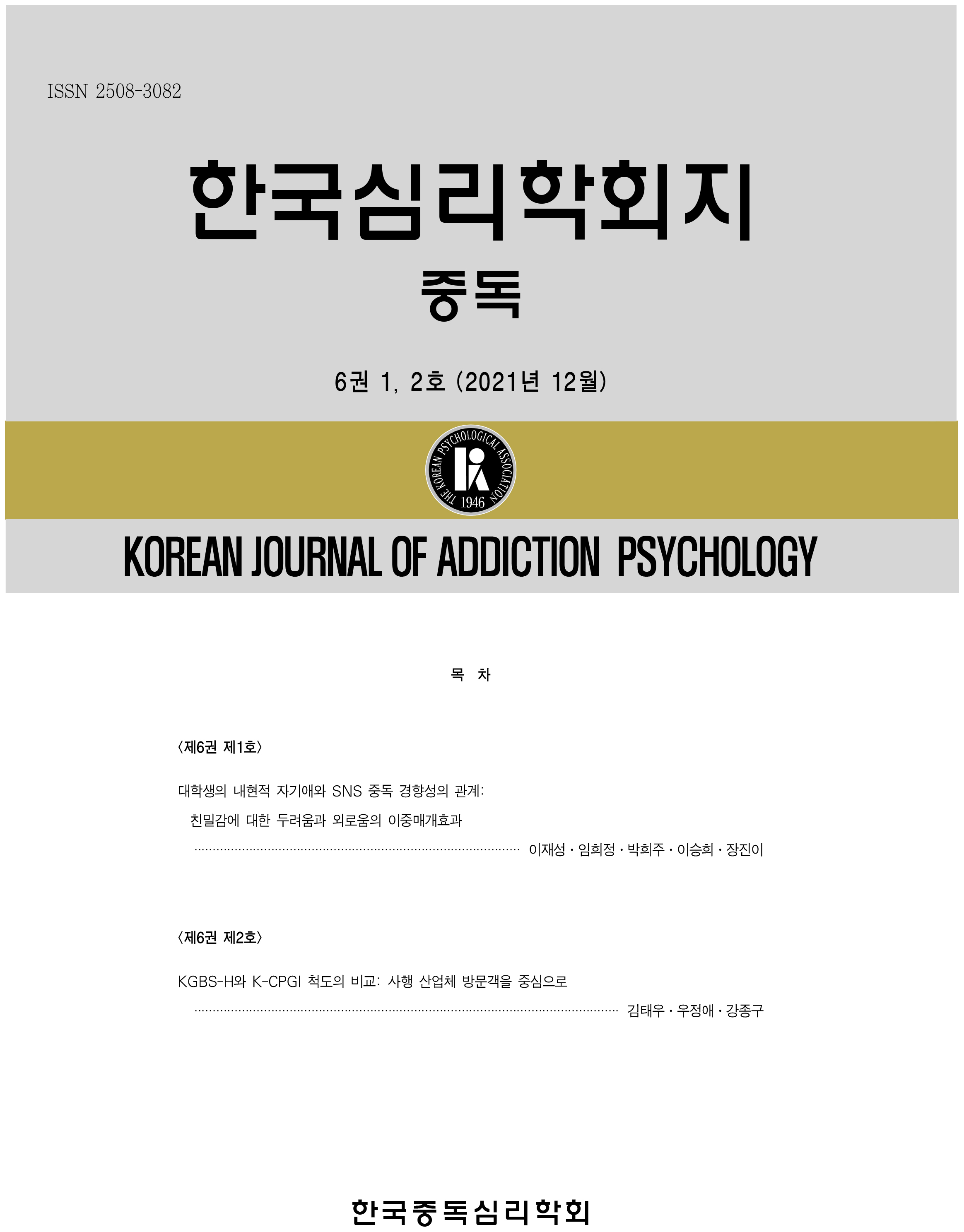Korean Journal of Addiction Psychology
- P-ISSN2508-3082
- E-ISSN3091-6054
 ISSN : 2508-3082
ISSN : 2508-3082
The Relationship between Game Use Types and Self-regulation in College Students

Joohee Park (Yewon-art University)
Abstract
The purpose of this study is to derive the positive effects of game activities by revealing the relationship between the form of game use and self-regulation of college students, and to promote the formation of a sound game culture by inducing good use of game. To this end, a survey was conducted on 128 college and graduate students to measure “metacognition”, “self-regulation”, “good use of games”, “problematic game use”, and “game time”. Factor analysis was conducted to construct variables to be introduced into the model. Through factor analysis, two factors of [regulation management] and [planning check] were identified in ‘metacognition’, and three factors of [action control], [emotion control], and [performance control] were identified in ‘self-regulation’. In ‘good use of games’, three factors of [expansion of positive effects], [expansion of social network], and [reinforcement of control], and in ‘use of problematic games’, two factors of [uncontrollability] and [inducing side effects] each was extracted respectively. As a result of structural equation model analysis to verify the three research hypotheses, the effect index from ‘metacognition’ to ‘self-regulation’ was significant (p<.001). Also, a significant result was found in the indirect effect from ‘metacognition’ to ‘game time’ via ‘self-regulation’ (p<.05). In addition, in ‘self-regulation’, a positive effect was shown for ‘good use of games’ and a negative effect for ‘problematic use’. There was also a significant difference in the total indirect effect of ‘self-regulation’ obtained through ‘good use of games’ and ‘problematic use’ (p<.05). Finally, there was a significant difference in the correlation between ‘good use of games’ and ‘problematic use’, and all three research hypotheses established in this study were verified. These results can be interpreted as suggesting that metacognition-activated self-regulation is a variable that will inhibit problematic game use and at the same time lead game selection.
- keywords
- good use of games, problematic game use, self-regulation, metacognition, college student
- Submission Date
- 2021-12-30
- Revised Date
- Accepted Date
- 2022-12-31
- 456Downloaded
- 602Viewed
- 0KCI Citations
- 0WOS Citations
